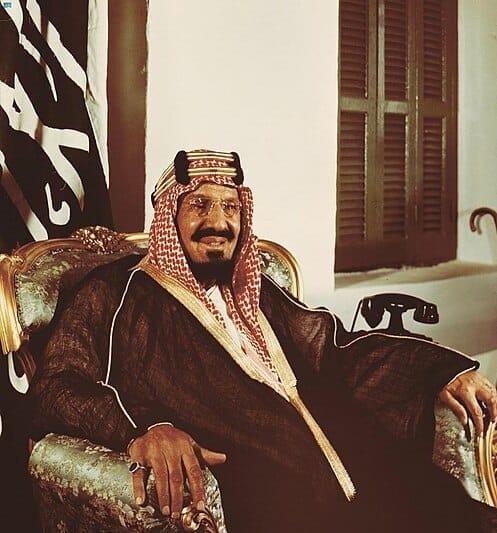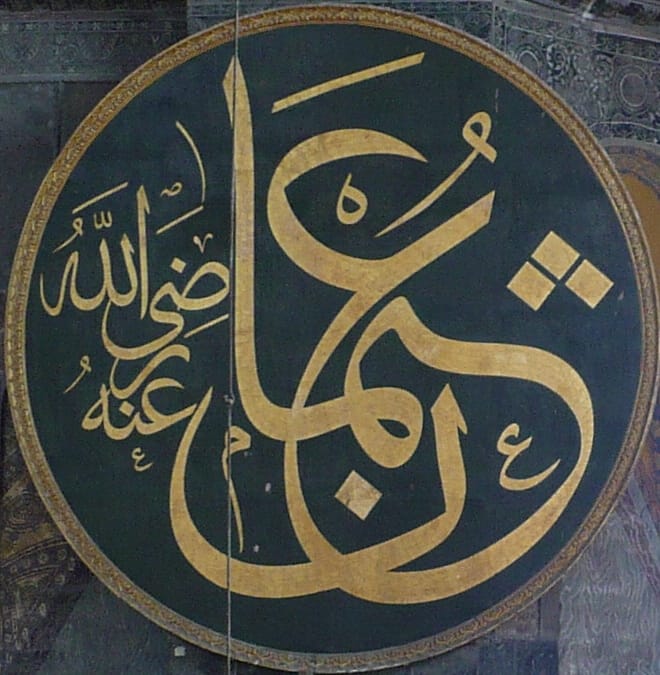Ibn Saud’s Creation of Saudi Arabia: The Role of the Successful Integration of the Bedouin – What That Means for Today’s Arab-Israeli Conflict

The incubation of functional states does not happen by accident. In a previous Abraham Alliance Institute article, we focused on the fact that Islam is not inherently violent. Rather, the absence of an efficient strategic leader defeats the self-preservation elements of Islam steeped in ethical monotheism.
The overwhelming majority of foreign-created states, especially those granted independence after sustained European rule encountered crises that caused them to regress into a failed-state status. A Palestinian state created through the Oslo Accord has never been recognized by the majority of Palestinians. This is due in part, to the fact that it was incubated by foreign elements and imposed on the Palestinians and their Israeli neighbors.
Saudi Arabia is one of the most stable and functional states in the Middle East and Global South. It was not a foreign creation, but the efficient and conscious work of its modern founder, Ibn Saud who combined elements of traditional Islamic governance to extract a functional state in the Arabian Peninsula from the collapsing Ottoman Empire.
While Abdul Aziz Ibn Saud (1875-1953) did many things to unify the communities of Arabia under a common Crown, one thing stands out – his handling of the desert-dwelling Bedouin communities of the Peninsular.
The term "Bedouin" refers to Arabic-speaking nomadic persons in the deserts of the Middle East, North Africa, and adjoining lands. They are often animal herders who have adapted to life in the desert and manage to make a living in between the different oases from ancient times. They typically migrate with their grazing animals through the desert during the rainy winter season and return to cultivated lands during the dry summer months.
Different Bedouin tribes specialize in breeding and nurturing different animal species that supplement their livelihoods and are traded with other Bedouin tribes. Some specialize in sheep and goats, while others focus on cattle. However, there were Bedouin groups that specialized in raiding trade caravans and villages on the margins of settled communities, while others demanded protection for settlements to prevent such raids. They maintain strong traditions that allow them to maintain their identity through the evolution of the harsh deserts.
Apparently, the survival skillset needed to thrive in the harsh expanding desert conditions interspersed with wars and insecurity is different from what is necessary to build stable states and sedentary settlements. Thus, the ability to build and develop states in most parts of the Middle East depended significantly on how Bedouin tribes were managed.
Thus, the Ottoman Empire held the holy Islamic cities of Mecca and Medina through agreements with the Bedouin tribes. This prevented raids and contributed to peacebuilding and the creation of fragile kingdoms that ruled under the Ottomans. However, such arrangements were bound to be temporary in nature and outlook.
Any permanent state in Arabia and most of the Middle East required a permanent arrangement with the Bedouin to survive and thrive. Centuries before Ibn Saud started unifying the Arabian Peninsula, the eminent Islamic scholar, Ibn Khaldun (1332-1406) wrote:
“Bedouin are a savage nation, fully accustomed to savagery and the things that cause it. Savagery has become their character and nature.
They enjoy it because it means freedom from authority and no subservience to leadership. Such a natural disposition is the negation and antithesis of civilization.
All the customary activities of the Bedouin led to wandering and movement. This is the antithesis and negation of stationariness, which produces civilization. For instance, they need stones to set them up as supports for their cooking-pots. So, they take them from buildings which they tear down to get the stones, and use them for that purpose. Wood, too, is needed by them for props for their tents and for use as tent poles for their dwellings. So, they tear down roofs to get the wood for that purpose.
The very nature of their existence is the negation of building, which is the basis of civilization. This is the case with them quite generally...”[1]
To be fair, Ibn Khaldun wrote a lot of non-complementary things about different groups of people in his time some 600 years ago. However, some of his submissions could be classified as a harsh narrative of the realities he witnessed. While scholars of today’s world might want to use other words, this was how Ibn Khaldun saw the Bedouin of his time.
Ibn Saud was a Bedouin himself. He believed in his own people's potential, so he harnessed it. Unlike Ibn Khaldun, the great unifier and founder of the Kingdom of Saudi Arabia sought to use his political leverage to lay the blueprints for the long-term stabilization and control of Arabia into the modern era. This saw Ibn Saud lay out practical agreements and arrangements to leverage and optimize the contributions of the Bedouin people to the new kingdom.
About a century and a half before Abdul Aziz Ibn Saud, his ancestors had found a viable relationship with a vibrant and dynamic Sunni preacher, Muhammad Ibn Abd al-Wahhab[2]. The teachings mainly focused on a theologian call for discipline and a return to the fundamental doctrines of Islam laid down by the Prophet – the Sunnah.
A campaign of absolute dictates of Wahhabism was launched throughout Arabia in the 1790s to the early 1800s. This led to the enlistment of many Bedouins and adherents to the Wahhabi doctrine that ultimately saw them conquer Mecca in 1803. While this did not last long, it laid the blueprints for the organization and enlightenment of Bedouins into an efficient force on the Arabian Peninsula.
By the time Ibn Saud started to rise in 1902, the Wahhabi template was at the back of his mind. Ibn Saud became a strict adherent of Wahhabism and Tawhid, which focuses on the oneness of God and condemned those who prayed and worshipped through other means.[3].
In 1912, Ibn Saud initiated a scheme to settle Bedouin tribes as a means of commencing a broad project that would help stabilize the kingdom and create aspirations among the people.[4].
Basically, many of the Bedouin knew the very basics of Islam and not the deeper elements that could allow them to live a fulfilling life. Rather, they relied on local clerics who only taught them what they knew.
Ibn Saud saw an opportunity to put together the Bedouins into sedentary settings where they could build permanent settlements, learn, and grow. This was the best way to eliminate long-held activities like raiding, border crossings, and petty feuds that were generally very damaging.
As part of the broader strategy, Ibn Saud founded the Ikhwan in 1912 to act as a brotherhood that would unite the clerics, encourage scholarship, develop social programs, and also maintain a military system that could help with wars in the future.[5].
In the same year, 1912, Ibn Saud instituted an agrarian policy that allowed Bedouins to settle and build colonies called the hijrahs. This ended the tribal nomadic system and new methods of social cohesion were put in place.
The Bedouin colonies had mosques and settlements that created a consistent body of laws and ideas that were refined and developed to create a consistent system on the ground. A hijrah or sedentary colony for the Bedouin had a population range from as few as ten to ten thousand. There were living quarters, schools, mosques, places for agricultural equipment, places for learning, and arms and ammunition points.
Tawhid, the Wahhabi principle of the oneness of God was taught in these hijrahs. This shaped the cultural and ideological structures of the society. The Ikhwan Brotherhood gained its collective strength in 1918. This practically replaced the old Bedouin allegiance to clans and tribes. Rather, the average individual was committed to the Tawhid and enlisted to fight for Ibn Saud's army.
This created the basis for a bottom-up statecraft process in Saudi Arabia. It has held the kingdom together to this day stably and efficiently.
Application to the Palestinian Case – A Bottom-Up State Incubation System is the Only Solution
As long as Palestinians can simply refuse to recognize anything served to them by the international community, there is no motivation for them to form a state. All they need to do is criticize any option presented to them – for any reason or no reason at all. This explains why Palestinians do not recognize a Palestinian state, even at a time when 146 states have voted for a Palestinian state to be formed.
This means the top-down approach being used to pressure Israel to recognize a Palestinian state is counterproductive. Anyone on any side will just have to pull some tantrums as Hamas did on October 7, 2023, and any international peace process will be set back by many decades.
As such, it is necessary for internal issues in Palestinian territories to be examined and resolved for a synthesis to be attained on the ground.
A Palestinian can only function from the bottom up.
This means there should be someone from within who will meet dissenting groups at the point of their needs so that a state can be incubated on its own terms – rather than what the international community thinks or feels.
Just as Ibn Saud refused to despise his people, but leveraged their strength under a common belief, someone on the Palestinian side has to rise to lay those blueprints for the Palestinian people.
Ibn Saud gained international confidence from the British and Americans when they saw how much control and leverage he had over the Arabian population from the bottom to the top. This is the kind of leadership that the Palestinians need.
From recent events and the level of outrage Israel has vented out against Hamas for the October 7 attacks, Hamas will not be allowed to govern the Gaza Strip or any part of the Palestinian territories in the future.
This means someone with foresight and strategic insight must rise to lead the Palestinian people. This will require consolidating systems that will create objective institutions.
Sinwar, Haniyeh, Deif, and their generation of Hamas leaders sought to preach a radical ideology that was based solely on the destruction of Israel. Such an ideology is not feasible. It does not create functional well-meaning ideologies. That means even if they had not launched on October 7, Hamas would still not be a movement that could thrive independently.
Ibn Saud's unification of the Bedouins was for the creation of a common purpose and ideology for the people – not against some Ottoman-controlled system or external adversary. Therefore, it is necessary for Palestinians to come up with a similar ideology relevant to the people and steeped in granting the Palestinians a unique identity in an absolute rather than relative sense.
Conclusion
No group deserves to be problematized. Every group has inherent good in them that can be harnessed and leveraged. Ibn Saud built on the blueprints his ancestors developed with the Wahhabis to unify the Arabian Peninsula based on a common belief. This led to the creation of a framework that allowed the Bedouins to live in settlements by their volution. This was based on the attractiveness of the core teachings of Wahhabism and the acceptance of Ibn Saud’s vision for them. With his internal success, Ibn Saud gained the backing of external players like the British and Americans. In the same way, Palestinians have a lot of potential. However, the current system of trying to force a state on Palestinians in the international community is bound to fail. It failed in 1947 when they rejected the UN Partitioning Plan and has continued to fail after the Oslo Accords. In the post-October 7 era, it is apparent that Palestinians need someone like Ibn Saud to rise and develop a common Palestinian identity that is outside the extrinsic ideology of destroying Israel. Hamas used that and launched a major terrorist attack that brought a lot of damage to them and all those who supported them. It is time for Palestinians to develop an objective system that can unite them and leverage individual Palestinian potential. If a viable Palestinian leader emerges, there will be no limit to support such a leader will gain from around the world – especially from the Saudis who are masters of statecraft in the region.
[1] Ibn Khaldun. The Muqaddimah (Princeton: Princeton University Press, 1967/2005) p200 [originally written, 1377)
[2] Michael Darlow & Barbara Bray. Ibn Saud: The Desert Warrior Who created the Kingdom of Saudi Arabia. New York: Skyhorse Publishing, 2012
[3] Bruce Riedel. Kings and Presidents: Saudi Arabia and the United States since FDR (New York: Brookings Institute Press, 2018) p16
[4] Khaled al-Radihan. “Adaptation of Bedouin in Saudi Arabia To the 21st Century: Mobility & Stasis Among the Shararat” Handbook of Oriental Studies 2006 Brill pp840-864
[5] Mohammad Zaid Al Kahtani. The Foreign Policy of King Abdulaziz Leeds: University of Leeds, 2004




